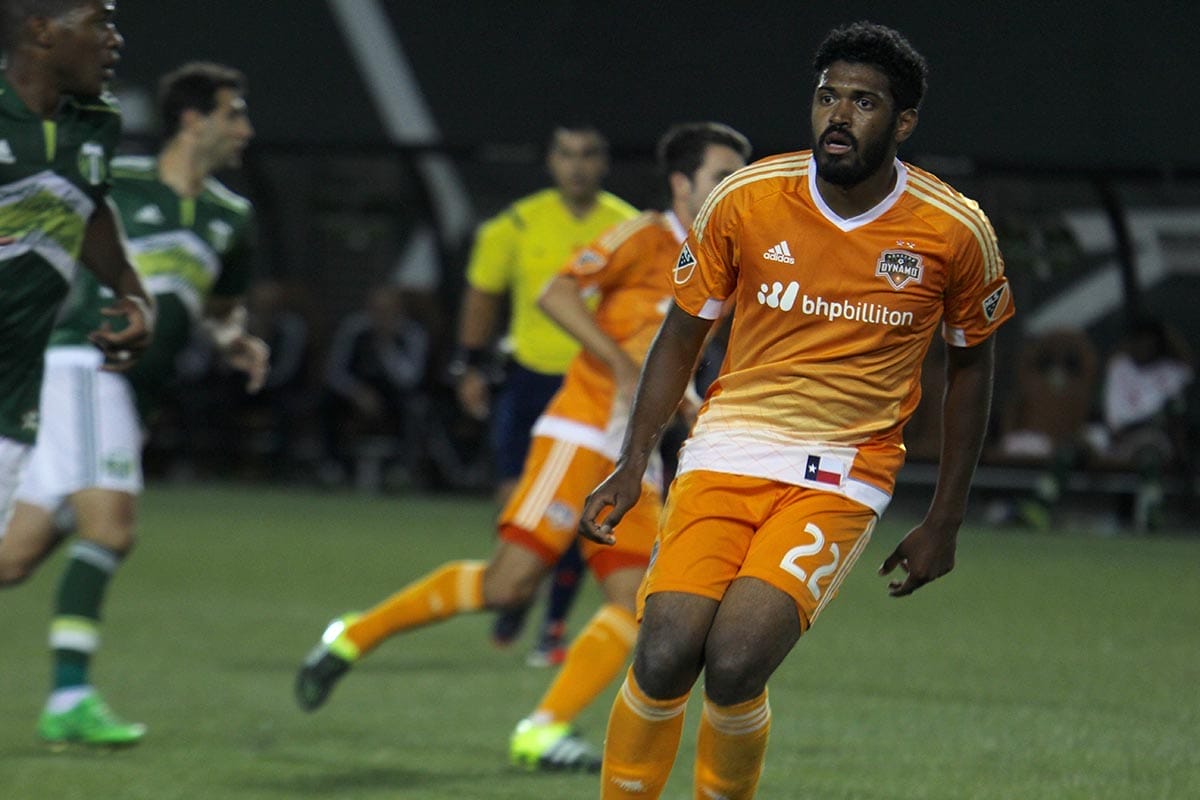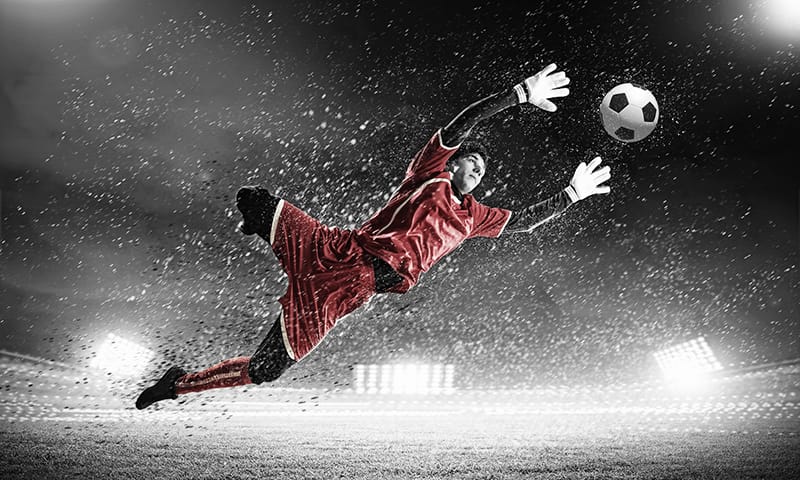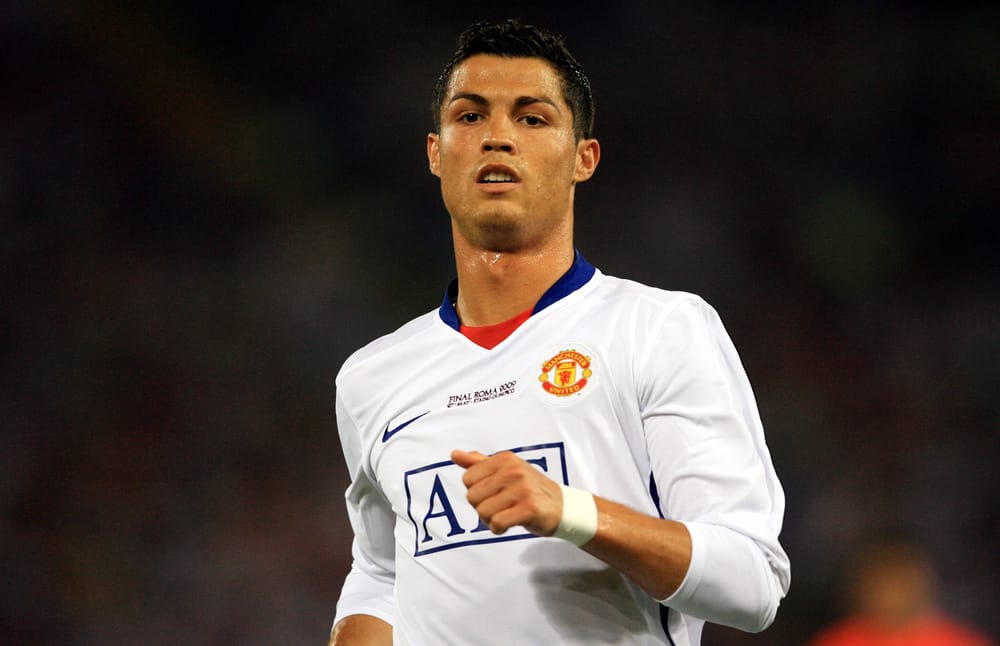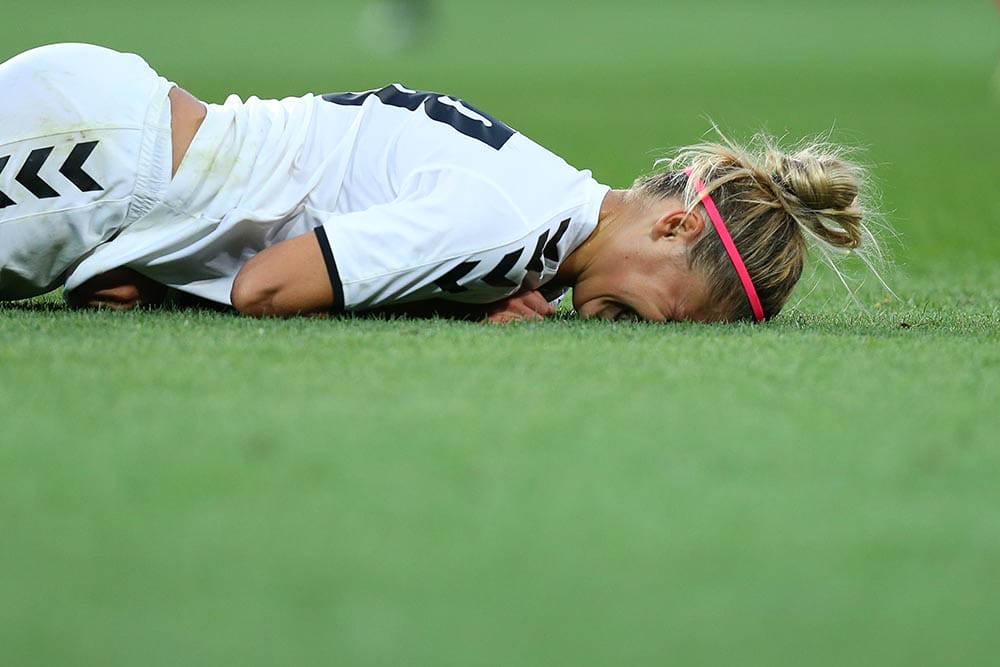Mental Imagery in Football: Unlocking the Mind’s Potential on the Field
Sports scientists and strength and conditioning coaches often speak about building resilient players. In this they are generally referring to players being resilient against injuries. But have we considered the importance of mental resilience?
Whilst the game of football is incredibly demanding from a physical perspective, it is also demanding from a mental perspective and practitioners should be looking to give their players the required tools to manage these mental stressors.
The problem that is often faced by practitioners or coaches is that they are unaware of the methods & techniques used by elite clubs to build motivation, focus and confidence while protecting the mental well-being of its players.

Mental Imagery is one such tool that coaches and staff can implement. Otherwise known as visualization or mental rehearsal, it involves creating a mental image or scenario without physically performing the action. This technique is not merely daydreaming but a deliberate mental exercise that engages multiple cognitive processes, including perception, attention, and memory.
In football, mental imagery can take various forms, such as visualizing scoring a goal, executing a precise pass, making a crucial save, or experiencing a hostile crowd in an away game. By repeatedly visualizing these actions or environments, players can reinforce neural pathways associated with the desired movements, effectively training their brains to perform better in actual game situations.
The Power of Visualization in Football
Mental imagery has been shown to have a profound impact on athletic performance in numerous studies across various sports, including football. One of the key mechanisms behind its effectiveness lies in its ability to prime the brain and body for action. When players vividly imagine themselves performing specific skills or tactics, their brains activate in a manner similar to when they are actually executing those actions. This mental rehearsal helps improve motor skills, decision-making, and overall performance on the field.
Moreover, mental imagery can also enhance confidence and reduce anxiety in football players. By visualizing themselves successfully navigating challenging situations or overcoming opponents, players can cultivate a winning mindset and boost their self-belief.
This mental resilience can be invaluable, especially in high-pressure scenarios such as penalty shootouts or crucial matches. We delve into these aspects of performance in a little more detail below

Skill Enhancement
Visualization allows players to mentally rehearse their moves, from dribbling past opponents to executing precise passes or shots on goal. By repeatedly visualizing successful execution, players reinforce neural pathways associated with those actions, leading to improved muscle memory and execution when they step onto the field.
Game Strategy
Mental imagery isn’t limited to individual skills; it also extends to understanding team strategies and tactics. Players can visualize themselves and their teammates implementing specific plays, formations, or defensive strategies. This mental rehearsal helps players anticipate game scenarios, make split-second decisions, and adapt to changing situations during a match.
Confidence Building
Visualization is a powerful tool for building confidence and self-belief. By repeatedly picturing themselves succeeding in various matchday scenarios, players bolster their confidence levels. This heightened self-assurance can help them stay composed under pressure, overcome setbacks, and perform at their best when it matters most.
Injury Rehabilitation
Mental imagery isn’t exclusive to on-field performance; it can also aid in injury rehabilitation. Football players recovering from injuries can use visualization to maintain a connection with their sport and visualize themselves returning to full strength. This mental rehearsal can facilitate faster recovery, enhance motivation, and mitigate the psychological impact of being sidelined.
Now that we understand the benefits of mental imagery, we will review how you could look to best harness the full potential of the mental imagery sessions, and then how to best incorporate them into your weekly training and match-day schedule.
Mental imagery isn’t exclusive to on-field performance; it can also aid in injury rehabilitation. Football players recovering from injuries can use visualization to maintain a connection with their sport and visualize themselves returning to full strength. This mental rehearsal can facilitate faster recovery, enhance motivation, and mitigate the psychological impact of being sidelined.
Now that we understand the benefits of mental imagery, we will review how you could look to best harness the full potential of the mental imagery sessions, and then how to best incorporate them into your weekly training and match-day schedule.
- Visualization Sessions: Allocate dedicated time during training sessions for players to engage in mental imagery exercises. Encourage them to visualize specific scenarios, such as attacking plays, defensive strategies, or individual skills.
- Create Vivid Images: When practicing mental imagery, it’s essential to create detailed and realistic images. Players should engage all their senses—sight, sound, touch, smell, and even taste—to make the visualization as vivid as possible.
- Combine with Physical Practice: Mental imagery should complement physical training, not replace it. Players should integrate visualization sessions into their overall training regimen to reinforce learning and skill development.
- Consistency and Repetition: Like physical training, consistency and repetition are key to reaping the benefits of mental imagery. Encourage players to incorporate visualization exercises into their daily routines to reinforce neural pathways and maximize performance gains.
- Daily reflection: Imagery sessions should be incorporated into the training week, with the coaching and performance staff using them to reinforce the technical and tactical message from previous training and analysis sessions.
- Pre-match Rituals: Prior to games, set aside a period where you meet as a team and the players are led by a coach through a mental imagery session. The players should all lie down, eyes closed, with the lights off. The coach or trainer will then take then through various primers, which focus on the various challenges they may face in the game. This is also a good time to reinforce any tactical messages that were conveyed in video analysis sessions.
- Post-match Reflection: After games, encourage players to reflect on their performance and identify areas for improvement through mental imagery. Visualizing both successful and unsuccessful moments can help players learn from their experiences and adjust for future matches. This can be coupled with the post-match video analysis to further enhance their reflection.

Conclusion
In the dynamic and demanding world of football, success often hinges on more than just physical abilities. Mental imagery represents a powerful yet often underutilized tool that can help players unlock their full potential on the field.
By incorporating visualization techniques into their training routines, football players can enhance their skills, boost their confidence, and gain a competitive edge over their opponents. As the saying goes, “The game is won in the mind,” and mental imagery is a game-changer in the quest for football excellence.
The difference between great players and average players can often be seen in their mastery of the mental aspect and dealing with adversity.
The Certificate in Soccer Psychology & Mental Skills Training course has been developed by some of the most respected soccer psychologists and mental skills practitioners to help players and coaches develop in the mental aspect of the game.
Who is this Course Suitable For?
- Individuals tasked with the responsibility for the training & coaching both individual players and teams at all levels of the game.
- Individuals with an interest in developing their knowledge and skills to enable them to coach players and teams at all levels to achieve peak mental performance.
- Sport psychologists keen to understand more about soccer science & football training.
Outline of the Foundation Certificate in Soccer Psychology & Mental Skills Training
Module 1: Introduction to Soccer Psychology
Lecturer: Dr Alena Grushko
Module 2: Energy Management in the Game
Lecturer: Ricardo Pires
Module 3: Improving Focus, Attention and Concentration in Soccer
Lecturer: Omer Ates
Module 4: Player Motivation: Goal Setting in Soccer
Lecturer: Sarah Murray
Module 5: Team Cohesion & Communication
Lecturer: Dr. Liam Anderson
Module 6: Developing Self Confidence in Soccer, Training & Match Interventions
Lecturer: Sion Rowlands
Module 7: Imagery as a Mental Skills Intervention
Lecturer: Omer Ates
Module 8: Coach & Player Self Reflection
Lecturer: Thomas Pratl
This is the first of 3 sport psychology courses that has an applied focus on Soccer Psychology & Mental Skills Training. Once you’ve completed this course, take a look at the Intermediate Certificate in Soccer Psychology & Mental Skills Training and finally the Masters Certificate in Soccer Psychology & Mental Skills Training.
These courses will build on the knowledge you acquire in the Foundation Certificate and expose you to more advanced methods & elite level techniques used by top-flight clubs, such as: Psychology of Injury, Understanding Personalities, Leadership and Culture, Psychological Periodisation and Mental Skill Development in Soccer.
FAQs
- Who is this course designed for?
This course has been designed for beginner to elite level coaches who want the latest research findings, most efficient training methods for soccer specific psychology and mental skills training.
- Are there sport psychology jobs in professional football?
The landscape in professional football has shifted dramatically over the past decade, with more clubs employing a Sport Psychologist at either Academy or First Team level.
- How much do Premier League sports psychologists make?
Starting salaries typically range from around £20,000 to £23,000. With experience, you can earn in the region of £27,000 to £38,000. Senior sport and exercise psychologists can earn more than £48,000.
- How long is the course?
This is a 16-hour course providing a deep understanding and best practices that can be applied to your own team environment to maximise performance and protect the mental well-being of your players.
- Is my progress logged through the course?
After each lecture there is a short multiple-choice test designed to cement your learning. You can access your test results at anytime through your course progress area.
- Can I stop/pause a presentation part way through?
Yes, the course is completely flexible. You can go back to a module at anytime and continue from where you left off.
- Can I take the modules in any order?
No. The course follows a set structure that must be studied in numerical order. You can only access the next module once you have completed the previous module test.
- Is there a time limit on the course?
Yes. This course has a 6-month access limit. You can access the course 24/7 within this period.
- Will I get a certificate to show that I have passed the course?
Yes, you will receive a pass certificate provided you have attained the minimum pass grade of 75%.
Share this article:







